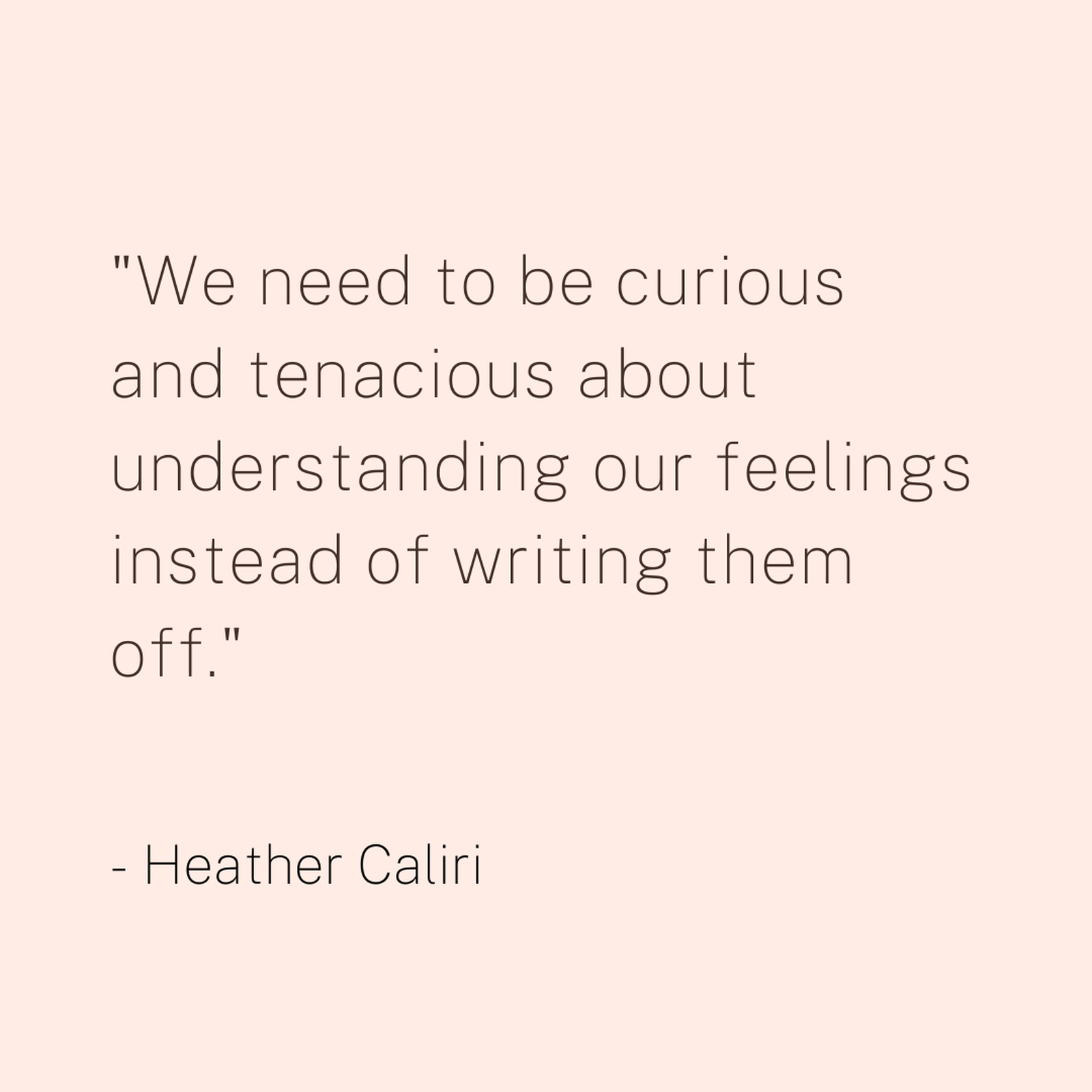
The other day, I spent my morning filled with nebulous dread. I had no idea why. Was I angry at someone? Had I over-scheduled myself? Was I avoiding a conflict?
The knot in my stomach twisted as I dropped my daughter at gymnastics. I hid in my car, trying to breathe. Lowering the seat back, I closed my eyes, praying peace would come.
I fell asleep. By the time my daughter emerged from class, I felt like myself again.
I thought I had a complicated problem. Instead, I just needed a nap.
Sometimes recognizing, understanding and treating my anxiety has felt like a game of whack-a-mole. I deal with one chronic worry only to have it pop up elsewhere, without rhyme or reason.
For years, these random fears didn’t make sense to me. Feeling fear so unpredictably made me wary of trusting myself. It also shamed me—a better Christian would not worry so much, or be so erratic.
Figuring out possible root causes for chronic worries has changed all that. Instead of facing unpredictable and seemingly random dread, God has brought me wisdom and discernment that I once despaired of experiencing.
Here are 4 reasons why many of us feel anxious—and why our bent towards worry isn’t all bad news.
Photo Credit: © GettyImages/Marjan_Apostolovic

1. You need to experience healing from the past.
Part of my struggle to address and heal my anxiety was how normal anxiety felt. My family was chaotic growing up, so I got used to feeling constant dread. It wasn’t until I was in my thirties that I realized how much worry I carried every day.
Trauma in my past haunted me in the present. For instance, graduating from college sent me into a depression (which is clinically related to anxiety). I didn’t realize that I was reliving the chaos of my siblings’ transitions to adulthood. A similar depressive episode after I had my first child was also partly due to past trauma.
It wasn’t until I got counseling in my late thirties that seemingly random fears began to make more sense. Only by looking through the past with new eyes could I see patterns of trauma, grieve losses I hadn’t yet reckoned with, and begin to face current struggles with the resources to cope.
Social science researchers use the Adverse Childhood Experiences quiz to evaluate past trauma. Taking the quiz online might give you important information about whether your background might be contributing to present distress. If it is, seeking reputable counseling can help you heal.
2. You need better boundaries and radical honesty in your present.
Years ago, I left one of my kids in the care of someone I did not fully trust while my husband and I went to the store. I didn’t want to offend them by turning down their offer.
Almost as soon as I got in the car to leave, I started feeling anxious. At the store, I grew more and more agitated. Finally, I told my husband, we needed to return immediately.
My child was fine, but later, talking over my fears with my therapist, she agreed my worry had been reasonable given that person’s past history. My desire to be nice had caused me to ignore my better judgement.
Even if my fear about that person hadn’t been warranted, though, I still needed to figure out why I felt anxious. Otherwise, I would never address the root problem.
Anxiety also surges when I say yes to too many commitments. It feels nice to say yes, especially when serving others is such a high value for Christ-followers. But ignoring our own limits is not only unwise, it’s also dishonest. Saying yes and pasting a smile on our face is really an act of pride, not servant-love.
Knowing when to say yes and no to people is the very definition of good boundaries. Boundaries require a radical honesty with ourselves and other people. Of course, honesty is always risky—sometimes people react terribly when we say no. But even then, we’ve gained valuable insight into whether they have our best interests at heart.
3. You may have a genetic tendency towards anxiety.
A few years ago, a member of my extended family told me that one of her kids had an anxiety disorder.
“Of course, anxiety runs in our family,” she said.
It does? I thought.
Understanding my family tree put my chronic worries in a different light. Yes, I deal with anxiety for a variety of reasons—but genetics probably plays a role.
Genetic tendencies aren’t destiny. We always have choices about how we react to our circumstances. Bottom-line, those of us with a predisposition towards anxiety (or depression, which is related) have thoughtful homework to do, noticing what triggers fear, and figuring out how to address those problems.
In my case, too much activity or too little sleep leaves my nerves ragged. So does violent or intense media. In addition, I’ve learned taking a Sabbath does wonders to inoculating me against worry.
Paying attention to your reactions and moods is an incredibly powerful practice. We learn as we go, figuring out where our particular limits are and honoring them as best we can.
4. You’re facing overwhelming circumstances.
Last year, I received an incorrect diagnosis. Because of the mistake, I received treatment that caused chronic itching and pain, making it very difficult for me to sleep, and limiting beloved activities. To my chagrin, my anxiety skyrocketed.
After the crisis passed though, I realized I’d expected too much of myself. Even if I’d felt waves of anxiety, I’d sought peace at every opportunity. I reached out to family and friends for help and comfort, honored my body’s limits, and cried out to God on the darkest nights.
It’s reasonable to feel worried and overwhelmed when we’re hit by unexpected storms. New diagnoses, divorce, job loss, death, or other shocks change everything. It takes time to take those changes in stride.
That’s not to say that we should stay stuck in fear and anxiety forever. Talking to women who live with chronic illness, I was so heartened by their resilience. Their lives were different than before their illnesses, but as one of my interviewees put it, she was in many ways healthier after her diagnosis.
Feeling anxiety and worry about calamity is human. Facing those worries with dignity and hope is God’s gift in awful circumstances.
Anxiety: A Weird Pathway to Discernment
Anxiety is like a warning light in a car—it feels like an annoyance, but it serves an important purpose. We can react with wisdom to anxiety by using our rational brain to evaluate perceived threats, being persistent when we don’t understand our misgivings, and asking for God and others to help us clarify emotions that bewilder us. We need to be curious and tenacious about understanding our feelings instead of writing them off.
Anxiety has given me an odd gift. It has taught me to pay attention. Whether evaluating my relationships, my work load, my daily habits, or whether I need a nap, living with anxiety invites me to choose wisely.
We talk a lot about “discernment” in the church, usually as a spiritual gift. But like all virtues, discernment and wisdom can also develop through ordinary choices—even in dealing with our fears.

Anxiety has forced me to wake up to the fact that I am not God, let go of ambition or ego, and instead lean into a simpler, more peaceful life. In many ways, it has turned into a deeply freeing spiritual discipline.
We often have too small a picture of what real wholeness looks like. We think it means going back to “normal,” where we have no limits and don’t have to notice how we feel. But is that kind of carelessness really God’s best for us?
In a long passage about avoiding sin and choosing to be filled with the Spirit, Paul calls his flock to “wake up,” counseling them to “be very careful how they live, not as unwise, but as wise” (Ephesians 5:1-15). Often, we focus on avoiding obvious sins, like lust or greed. But God is also calling us to a life lived wide awake and aware. If we wake up to it, God’s wholeness can percolate into our daily habits, filling our ‘ordinary, walking around lives’ with freedom.
Even terrible emotions like chronic anxiety can bring unexpected gifts: a commitment to waking up to the implications of our choices and a chance to live with deep wisdom in ordinary time.
References:
Adverse Childhood Experiences Quiz
Boundaries: When to Say Yes, How to Say No to Take Control of Your Life
Photo Credit: ©iStock/Getty Images Plus/Bulat Silvia
Want more interaction with the women of iBelieve? Join our fans, writers, and editors at the iBelieve Facebook group, Together in Faith, for more videos, stories, testimonies, prayers and more. Visit here to join the community!


